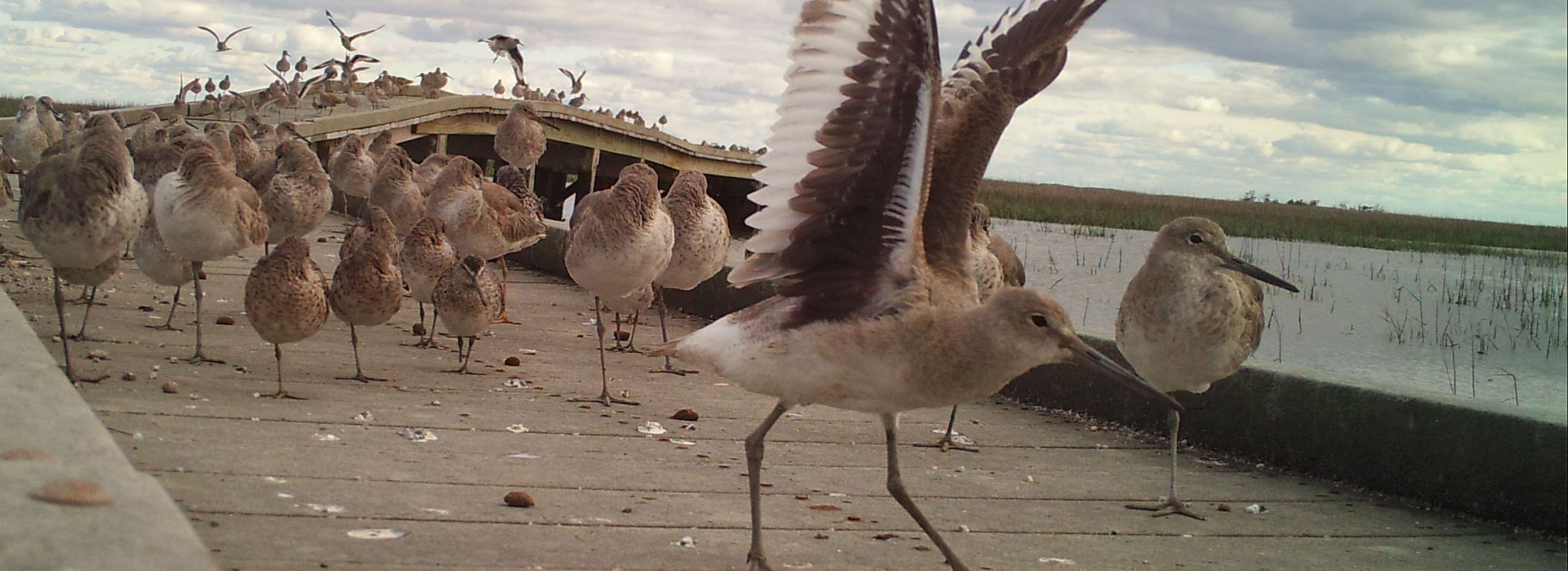Coastal Training Program
Although in-person events are on hold, the Coastal Training Program is still working to support decision-makers in coastal communities. To cope with the “new normal” of remote work and collaboration, CTP recently hosted a training on “How to Plan and Facilitate an Engaging Virtual Meeting.” Participants learned techniques to improve virtual meetings so we can be productive and feel connected, even when we’re apart! Is “Zoom”-ing making you dizzy? Check out these resources on best practices for online meetings: https://www.northinlet.sc.edu/resources/.
Research
We are continuing core Research & Monitoring efforts in order to maintain long-term datasets on water quality, weather, marshes, and biological communities in North Inlet and Winyah Bay. Reserve research staff are finalizing water quality and weather data sets collected in 2019 to get them ready for submission to the online NERRS database (cdmo.baruch.sc.edu), and researchers from the USC Baruch Marine Field Lab have continued to sample estuarine fauna to maintain continuity of a 40+ year time series. With the onset of warm weather, we are gearing up for a modified field season and will be collecting data on sediment porewater chemistry, marsh sediment surface elevation, marsh crab species composition, blue crab and stone crab abundance, and marsh vegetation cover, among many other ongoing projects. Despite some epidemic-related setbacks, the NI-WB NERR Research & Monitoring staff are staying busy conducting important research to understand our estuary!
Education
Despite the Hobcaw Barony Discovery Center closing in mid-March and field trips and public programs cancelled or postposted, Reserve educators are safely social distancing and working from home to continue estuary education and outreach efforts. NOAA and NERR resources are being enhanced and repackaged to assist teachers and parents unexpectedly tasked with online elearning, and new content is being created for the Reserve’s K12 and public activities-coming soon to our website and social media.
With spring and summer programs on hold, this unexpected time has allowed us to explore new programs and delivery methods, develop volunteer guidance for our recently established Friends group, study the results of our recent teacher needs assessment of Georgetown, Horry and Williamsburg County teachers, and plan for our ‘Teachers on the Estuary’ professional development training, now pushed to late summer/early fall.
The Discovery Center classroom and displays, as well as our saltwater tanks and live animal exhibits, have all received a thorough spring cleaning and the snakes, turtles and alligator are enjoying their refurbished habitats, a bit of peace and quiet, and lots of extra treats!
Stewardship
This spring may be a little more quiet around the Baruch Marine Field Lab with programs postponed and most staff working from home, but the marshes, creeks and beaches of North Inlet are still bustling with estuarine inhabitants. We are continuing limited monitoring of shorebirds and phytoplankton, and experimenting with using trail cameras for wildlife observation. The spring 2020 Master Naturalist class unfortunately had to be cancelled, but new advanced training opportunities are under development for this fall. We are also using this time to plan new citizen science projects to expand opportunities for our community to become involved in Reserve research and stewardship.



